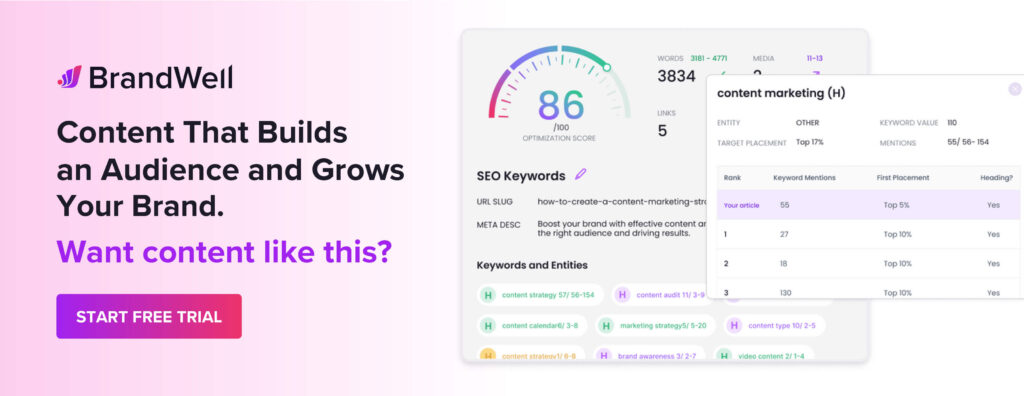Discover top guides, trends, tips and expertise from AIO Writers
The Future of Work: ChatGPT Automation in the Workplace
Julia McCoy
Thursday, 4th May 2023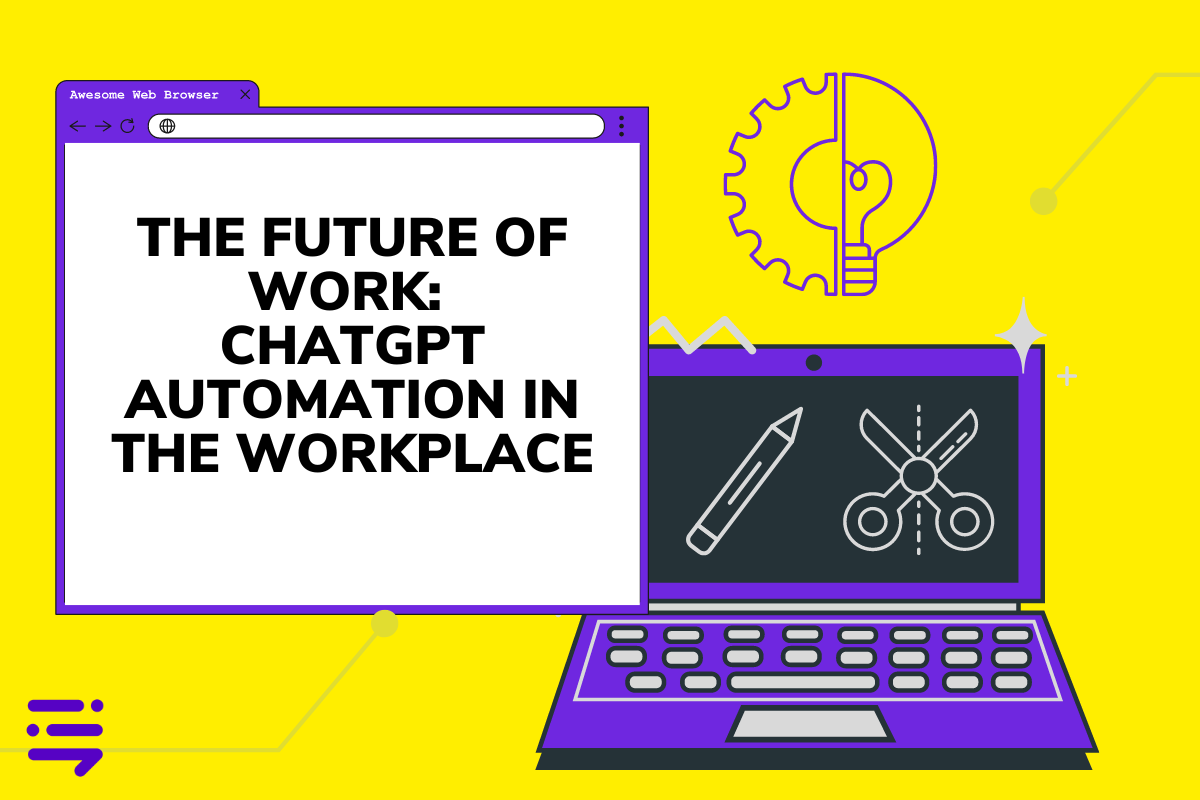
It’s no surprise that ChatGPT automation is becoming increasingly popular in the business world.
Many of today’s workflows involve repetitive tasks that are time-consuming but don’t require analytical skills. With ChatGPT automation, employees can focus on more important activities while robots take care of mundane duties.
According to a Zapier report, 94% of workers in small and medium-sized businesses (SMBs) perform repetitive, time-consuming tasks. But thanks to automation:
- 67% of employees have become more productive.
- 63% are able to fight burnout.
- 58% save plenty of time doing mundane tasks.
As chatbot workflow automation continues to gain traction, organizations are discovering new ways to harness the power of artificial intelligence for improved efficiency and productivity in the workplace.
In this blog post, we’ll explore the benefits of ChatGPT workplace automation in different industries and the best practices for its implementation. By the end of the article, you’ll be better equipped to adapt AI technology to your day-to-day operations.
Table Of Contents:
- What is ChatGPT?
- Benefits of ChatGPT Workflow Automation
- The Rise of Generative Artificial Intelligence
- ChatGPT Automation in Various Industries
- Environmental Impact of AI
- The Future of ChatGPT in The Workplace
- FAQs – ChatGPT Automation
- Conclusion
What is ChatGPT?
ChatGPT is an artificial intelligence tool that can automate various tasks in the workplace. It uses natural language processing (NLP) to understand and respond to human questions and prompts, making it a powerful tool for businesses looking to streamline their operations.
The rise of AI tools like ChatGPT has led to concerns about job security. Will manual laborers be replaced by robots? Can white-collar work be automated?
According to a report by Goldman Sachs, AI could affect as many as 300 million full-time jobs worldwide. While emerging markets may not feel the effects as deeply, advanced economies are expected to be hit harder.
Goldman Sachs estimates that around two-thirds of current jobs in Europe and the United States are “exposed” to some degree of AI automation. More than a quarter of all work done today could eventually be replaced entirely by AI tools.
Benefits of ChatGPT Workflow Automation
The biggest benefit of AI and ChatGPT automation in the workplace is improved productivity.
Complete Office Tasks in Minutes
In a study conducted by MIT graduate students, ChatGPT was able to complete office tasks in half the time — from 30 minutes to just 17 minutes — while also increasing the quality of the work. This is a significant improvement compared to traditional methods employed by administrative workers.
By automating routine tasks such as email drafting or report generation, employees can focus on more strategic aspects of their roles.
Higher Job Satisfaction
Tracking employee engagement is one of the key areas where AI can help boost employee satisfaction. By tracking your employees’ engagement levels and identifying those who are not happy with their job or their workplace, you can create an action plan to improve their situation.
Similarly, integrating ChatGPT into white-collar work environments can ease the burden of repetitive tasks while allowing employees more time for creative problem-solving and innovation.
Better Time Management
With the help of advanced algorithms that quickly process information and generate responses based on context cues, manual laborers can save valuable time and energy on routine tasks.
Reduced Errors
AI tools like ChatGPT can help minimize human errors in data entry, document creation, or customer service by providing accurate information and suggestions based on historical patterns and user inputs.
Enhanced Collaboration
By streamlining communication processes through chatbot interfaces, team members can collaborate more effectively to achieve common goals. This is particularly beneficial for remote teams that rely heavily on digital platforms for collaboration.
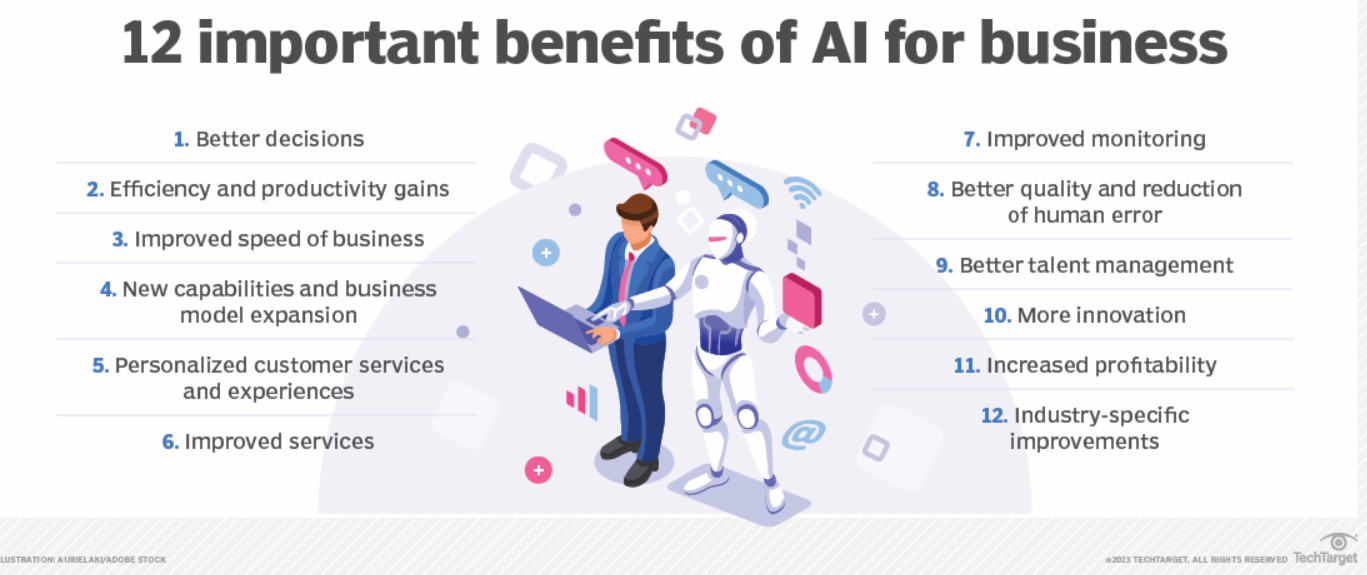
Source: TechTarget
The Rise of Generative Artificial Intelligence
If generative artificial intelligence continues delivering on its promised capabilities, significant disruption can occur within the labor market. ChatGPT – the chatbot sensation – has taken over industries across sectors including finance and healthcare.
Its latest version, known as GPT-4, has already impressed early users with its ability to build websites from simple sketches, making life easier for developers who no longer need extensive coding skills.
While most tasks in the workplace can be automated, jobs that require critical thinking and creativity are less likely to be affected in the near future. For example, financial analysts may use AI tools to help them make investment decisions but will still rely on their own expertise and judgment when making final recommendations.
Although AI-powered chatbots like ChatGPT have the potential to automate many jobs, it’s important to note that they are not a complete replacement for human workers. But these tools can enhance productivity and efficiency in certain roles when used correctly.
To stay ahead of the curve, businesses should be proactive in identifying which roles could benefit from automation and invest in training programs to help employees develop new skills that will remain relevant as technology continues to evolve.
Let’s look at key professions where chatbot workflow automation may have the most impact.
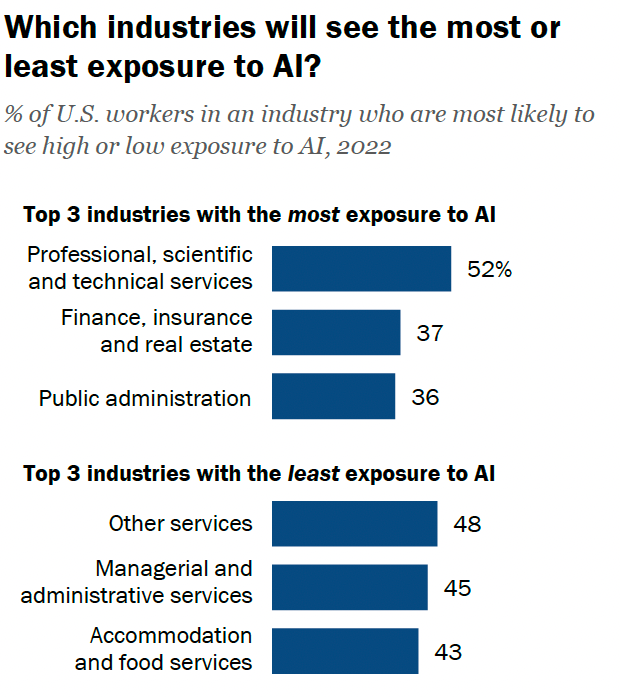
Source: Pew Research Center
ChatGPT Automation in Various Industries
The rise of artificial intelligence has revolutionized the way businesses operate, and ChatGPT is no exception. With its ability to process vast amounts of data and generate human-like responses, it has become a valuable tool in various industries.
Manual Labor
Manual labor jobs are often repetitive and require physical exertion that can lead to injury or fatigue. AI-powered robots have already started replacing humans in manufacturing plants, assembly lines, and warehouses for tasks such as packaging, sorting goods, or even assembling products. These machines can work 24/7 without getting tired or needing a vacation while producing consistent quality output at lower costs than hiring people.
White-Collar Work
While automation may be suitable for repetitive tasks with minimal decision-making skills, it’s not great for complex tasks. White-collar workers perform complex office jobs that require higher-level thinking skills like analysis and strategy development, which AI tools can’t replicate.
For example, lawyers need to understand legal precedents and apply them creatively based on individual cases rather than just providing generic advice based on pre-defined rules.
Administrative Workers
In administrative work that involves simple office tasks like scheduling appointments, answering phone calls, or drafting emails, ChatGPT could improve efficiency. However, it might not replace the entire workforce, especially where more personalized tasks are needed.
Customer Support Agents and Telemarketers
Customer support and telemarketing are professions that could experience significant disruption as a result of ChatGPT automation. These bots can handle customer inquiries more efficiently than human operators while also being available 24/7. This means fewer office workers would be needed for telemarketing tasks, potentially leading to job losses in this sector.
Knowledge Work
Knowledge workers are people who think for a living, like programmers, architects, physicians, engineers, scientists, lawyers, and professors.
ChatGPT automation can help knowledge workers automate mundane aspects of their jobs while they focus on high-value activities.
History Teachers
Rather than replacing history teachers entirely, ChatGPT can serve as a valuable tool for enhancing lesson plans and engaging students in new ways. For example, AI-assisted teaching platforms can help educators create interactive quizzes or generate discussion questions based on historical events or texts.
By incorporating AI programs into the classroom, history teachers can focus more on fostering critical thinking skills among students rather than spending time on administrative work.
Sociologists
Sociologists often deal with large datasets when conducting research studies. Using artificial intelligence algorithms like those found in ChatGPT can help them analyze data more efficiently and accurately.
Similar AI tools can also help sociologists in designing surveys that are better tailored to their research questions, leading to higher-quality data collection.
With the ability to quickly scan and summarize vast amounts of academic literature, chatbots like ChatGPT could save researchers significant time when conducting a comprehensive literature review.
HR Professionals
In the realm of human resources, administrative workers often spend a significant amount of time creating job descriptions or handling routine tasks that could be automated using AI solutions like ChatGPT.
For instance, HR professionals can use ChatGPT automation to quickly generate accurate and engaging job descriptions tailored to specific roles within an organization. They can also automate repetitive tasks such as scheduling interviews or managing employee onboarding paperwork, freeing up valuable time to focus on more strategic aspects of their work.
Sales
While it’s unlikely that AI-powered chatbots will completely replace sales teams due to the importance of interpersonal skills in building relationships with clients, there is still potential for increased productivity with AI.
Sales professionals may benefit from chatbot support during initial customer interactions or follow-ups, allowing them to manage larger client portfolios without sacrificing the quality of service.
- Better lead qualification: ChatGPT automation can help sales teams qualify leads more efficiently by gathering essential information and answering frequently asked questions.
- Faster response times: AI tools like ChatGPT can provide instant responses to customer inquiries, ensuring that potential clients receive the attention they need quickly.
- Improved data analysis: By analyzing customer interactions with chatbots, sales professionals gain valuable insights into their prospects’ needs and preferences, enabling them to tailor their approach accordingly.
Here’s an example of how I used ChatGPT automation to write a marketing email:
 Creatives
Creatives
Writers, musicians, designers, and other creatives are also feeling the impact of AI.
Robots are now writing essays, drawing pictures, and even writing songs. Particularly in content marketing, AI tools have become so sophisticated that a simple keyword input can generate thousands of words in perfect English within seconds!
Creating content requires time-consuming topic ideation, research, and outline building. Before you even reach the actual writing part, you’ve already spent hours doing the prep work. With BrandWell, the entire process from brainstorming to writing the first draft takes less than 5 minutes!
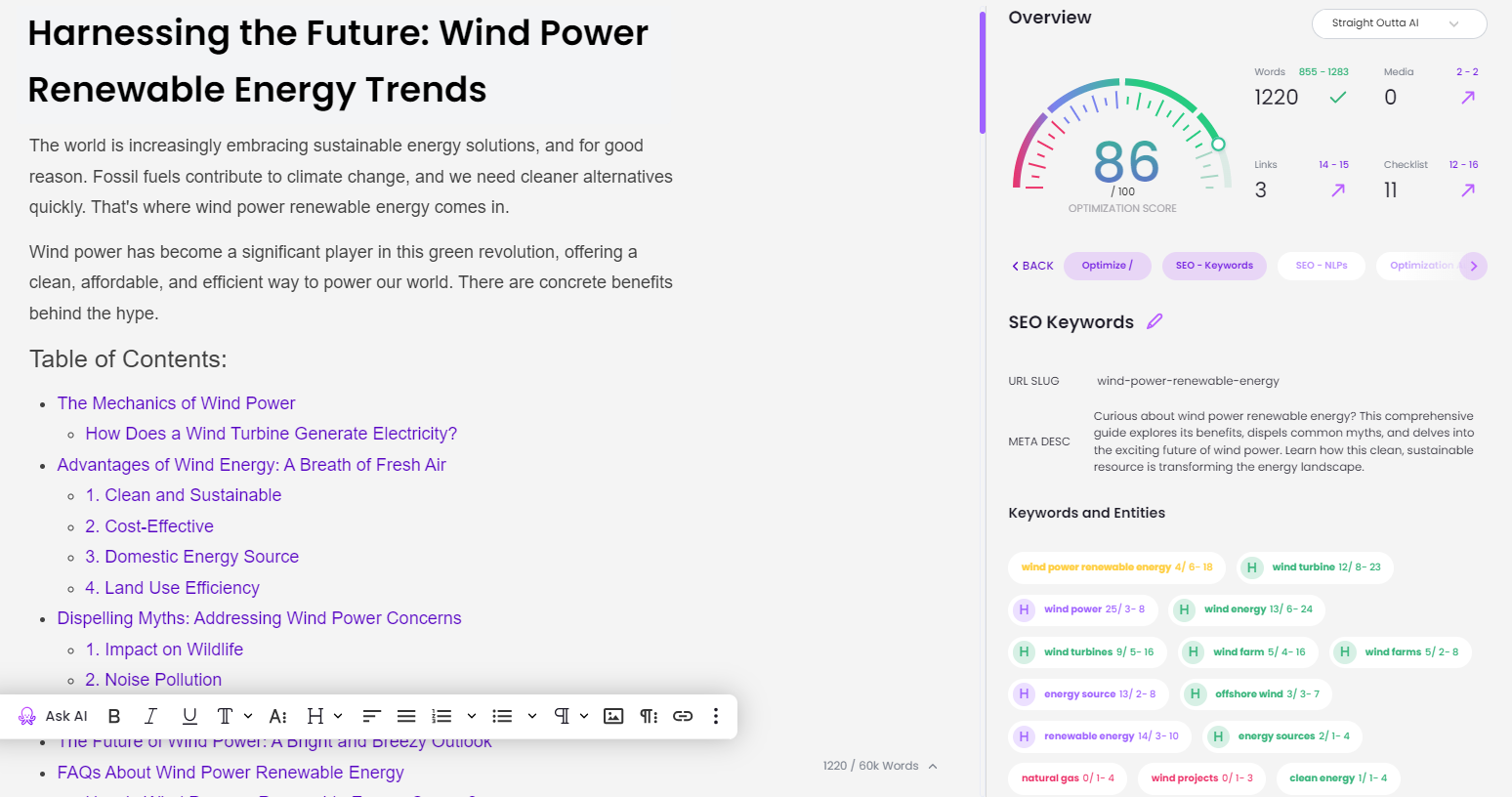
Automating Routine Tasks
- Title generation: One area where ChatGPT excels at assisting writers is title generation: given a topic or keyword phrase, it can suggest multiple titles you could use based on what other users have searched before.
- Idea creation: Another area where ChatGPT comes in handy is when trying to come up with new article ideas. The chatbot can scan through millions of data points and provide you with a list of topics in your niche that can be used as inspiration for creating fresh content.
- Content creation: ChatGPT can assist writers by generating full sentences or paragraphs based on the prompts provided.
In the example below, I used ChatGPT to generate headlines for my new blog.

Limitations of ChatGPT
- Lacks creativity: While AI tools can generate ideas and create content at incredible speeds, they lack the creativity, wisdom, and experience of their human counterparts. They cannot come up with truly original thoughts or concepts without human input.
- Limited word count: ChatGPT can only write around 600 to 800 words, max. If you want to write a comprehensive blog post, you will have to ask the chatbot to write it section by section, submitting separate prompts for each. If you are looking for a tool that specializes in long-form content, then BrandWell is the better choice. (BrandWell now has its own chatbot called AIMEE which can virtually replace ChatGPT)
- Different tone and voice: The tone and voice generated by an AI model may not always align perfectly with your brand messaging so it’s important to write highly detailed prompts that specify how you want the AI to respond.
- Lacks empathy: As good as these AI models have become over time, they still lack empathy and are not capable of understanding certain nuances in language or context, making them prone to errors sometimes.
ChatGPT automation will never fully replace human writers but it can be a great helper especially when working under tight deadlines requiring huge amounts of work.
While some professions may face displacement due to advancements in AI technologies like ChatGPT, others stand to benefit from incorporating these tools into their work processes. By embracing the potential of artificial intelligence for tasks such as data analysis or content creation, professionals across various sectors can increase productivity and efficiency within their roles.
Environmental Impact of AI
The rapid growth of artificial intelligence applications has led to a significant increase in energy consumption worldwide. For instance, training an advanced natural language processing model like ChatGPT can consume as much electricity as it takes to power a small city.
As more industries adopt chatbot workflow automation, the demand for computational resources and associated energy usage will continue to rise.
- Data centers: The expansion of data centers necessary for supporting large-scale chatbot implementation contributes significantly to global energy consumption.
- Cooling systems: Maintaining optimal temperatures within these facilities requires sophisticated cooling systems that also contribute heavily towards overall power usage.
- E-waste generation: Increased reliance on electronic devices creates additional challenges related to e-waste management and disposal practices.
To mitigate the negative impact of AI on the environment, businesses must consider sustainable solutions while implementing ChatGPT in the workplace. Some strategies include:
- Implementing energy-efficient hardware, cooling systems, and renewable energy sources.
- Investing in research to develop more efficient AI algorithms that require less computational power and consume fewer resources during training and deployment phases.
- Minimizing e-waste generation through responsible recycling practices and extended product lifecycles.
Incorporating these sustainable strategies can help businesses minimize their environmental footprint while taking advantage of the power of AI. Businesses can secure their future without sacrificing the environment by finding a balance between tech progress and eco-friendly practices.
The Future of ChatGPT in The Workplace
The growing competition among chatbot technologies presents both opportunities and challenges for businesses looking to adopt these solutions. On one hand, increased rivalry leads to rapid innovation and improvement in features offered by various platforms. For instance:
- Better integration capabilities: Businesses can expect improved compatibility between different software systems as providers strive to make their products more versatile.
- Innovative use cases: The race among competitors will likely result in new applications for chatbots across industries such as healthcare, finance, customer service, and beyond.
- Affordability: With multiple options available on the market, pricing may become more competitive over time – making it easier for small and medium-sized enterprises (SMEs) to implement advanced AI tools without breaking the bank.
On the other hand, businesses must be cautious when selecting a chatbot platform. Take into account factors such as data security, privacy, and customizability. (BrandWell will NEVER share your information with the world!)
Before investing in a chatbot platform, companies should research vendors and assess them based on their specific needs to ensure they make the best decision for their long-term objectives.
FAQs – ChatGPT Automation
Can I use ChatGPT for work?
Yes, you can use ChatGPT for various professional tasks such as content creation, customer support, and data analysis. It helps increase productivity by automating repetitive tasks and providing AI-assisted insights. However, it is essential to evaluate the tool’s applicability to your specific job requirements before implementation.
How many people lost their jobs because of ChatGPT?
It is difficult to provide an exact number of job losses due to ChatGPT specifically. However, AI technologies like chatbots have led to some displacement in professions such as telemarketing and customer service roles. The impact varies across industries. Some jobs may be augmented rather than replaced entirely by automation tools.
Is ChatGPT causing layoffs?
ChatGPT itself isn’t directly causing layoffs but contributes to the broader trend of workplace automation using AI technologies. While certain positions might face displacement due to increased efficiency through these tools, other opportunities emerge that require human expertise combined with advanced technology solutions.
What jobs are most affected by ChatGPT?
The following professions are among those most impacted by chatbot technologies like ChatGPT:
- Telemarketers
- Sales representatives (partially)
- Data entry specialists
- Certain administrative roles
However, many professionals can adapt or augment their skills with AI assistance instead of facing complete replacement.
Conclusion
The impact of ChatGPT automation on the global workforce is a topic that will continue to be discussed as more companies and industries adopt these technologies. While there are undoubtedly benefits to using AI tools in the workplace, it’s important to consider how we can mitigate any negative effects they may have on workers who could potentially lose their jobs due to this shift in technology.

UNLOCK YOUR POTENTIAL
Long Headline that highlights Value Proposition of Lead Magnet
Grab a front row seat to our video masterclasses, interviews, case studies, tutorials, and guides.

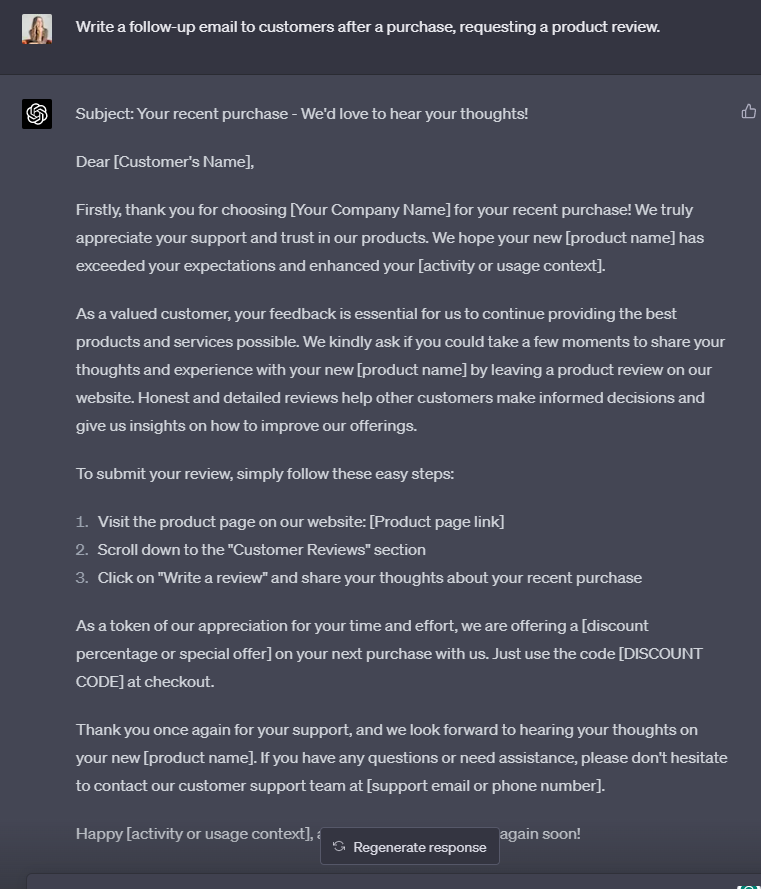 Creatives
Creatives